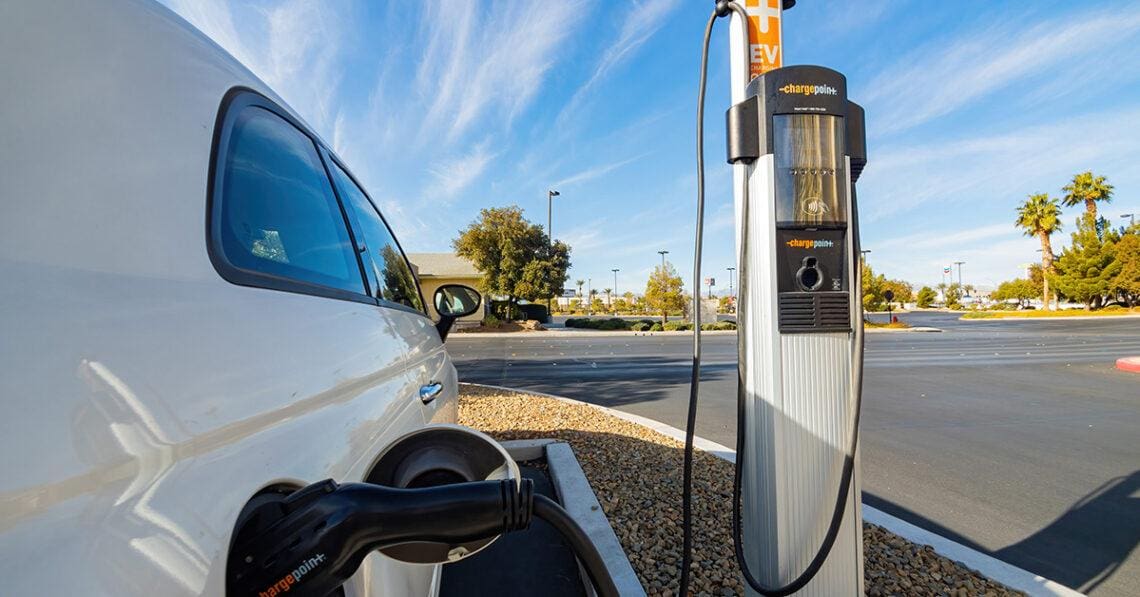New guidance on electric vehicle tax breaks seeks to clarify what criteria a purchase will need to meet for a taxpayer to benefit. Guidance on materials is a welcome sight, but Robert J. Gardner and P. Lee Smith of Baker Donelson are left wondering about a key omission.
The U.S. Treasury Department and the IRS released proposed guidance related to the 30D credit, which extends as much as $7,500 in consumer tax breaks for cars that meet criteria on their MSRP, their buyer’s income, where their components come from and where the vehicles are assembled.
The most controversial requirements are focused on the components and minerals within the battery, and the proposed rule addresses these requirements, hewing close to a Treasury whitepaper last year. The guidance also makes clear that deals to include Japan and the EU within the credit’s definition of “free trade agreement” country are moving forward.
The Energy Revolution Is Underway: Is Your Company a Player?
Informed organizations in all industries are establishing carbon emissions reduction and net-zero targets. Protiviti’s Jim DeLoach explores how strategic conversations in the C-suite and boardroom have an important role to play.
Read moreWhile the proposed rule provides much-needed clarity around how to meet the critical minerals and battery components requirements, it does not clarify the most constraining requirement in the 30D credit — the avoidance of foreign entities of concern (FEOC).
In 2024 and 2025, the 30D tax credit will become even more stringent as provisions go into effect prohibiting the sourcing of any battery parts and critical minerals from “foreign entities of concern,” which will include those with ties to China. Administration officials have stated that guidance on the FEOC provision would not be released until later this year.
Interested parties may file comments on this proposed rule by June 16, 2023.
Critical minerals
The guidance would provide a three-step process for determining the percentage of the value of the applicable critical minerals in a battery that goes toward meeting the minerals requirement.
Step 1: Determine procurement chains: Guidance defines “procurement chain” as a common sequence of extraction, processing or recycling activities that occur in a common set of locations, concluding in the production of constituent materials. The guidance defines “extraction,” “processing,” “recycling,” “value” and “value added.”
Step 2: Identify qualifying critical minerals: Manufacturers would determine whether critical minerals procured from the chain have been 1) extracted or processed in the United States, or in any country with which the U.S. has a free trade agreement in effect, or 2) recycled in North America.
An applicable critical mineral would be treated as extracted or processed in the U.S., or in any country with which the U.S. has a free trade agreement in effect, if: (1) 50% or more of the value added to the applicable critical mineral by extraction is derived from extraction that occurred in the U.S. or in a free-trade country, or (2) 50% or more of the value added to the applicable critical mineral by processing is derived from action that occurred in the U.S. or a free trade partner. An applicable critical mineral would be treated as recycled in North America if 50% or more of the value added by recycling is derived from action that occurred in North America. A few key issues:
- Notably there would be a transition rule for the proposed 50% value-added test that would serve that purpose for vehicles placed in service in 2023 and 2024. For later years, however, Treasury and the IRS anticipate moving to a more stringent test. Treasury is requesting comments on this more stringent test.
- Treasury provided flexibility in how it interprets the IRA’s requirements regarding free trade agreements (FTAs). The proposed guidance defines the metal powders contained in an EV battery’s electrodes as “critical minerals,” rather than “battery components.” Defining them as battery components would have imposed even more severe restrictions on vehicles eligible for the credit.
- Treasury opened the door for a broader range of U.S. allies to qualify as trading partners under the critical minerals requirement. The guidance allows countries to qualify for the credit if they have made narrower agreements with the U.S. on trade in critical minerals. Japan signed such an agreement in March, allowing Treasury to add it to its list of approved suppliers. Trade negotiators from the U.S. and EU are trying to work out a similar agreement. The two sides hope to complete it by the time the Treasury publishes the final guidance. Current FTAs are in place with Australia, Bahrain, Canada, Chile, Colombia, Costa Rica, Dominican Republic, El Salvador, Guatemala, Honduras, Israel, Jordan, Korea, Mexico, Morocco, Nicaragua, Oman, Panama, Peru and Singapore.
Step 3: Calculate qualifying critical mineral content: Involves calculating the percentage by value of qualifying critical minerals contained in a battery. This would require qualified manufacturers to select a date for determining the values associated with the total value of qualifying critical minerals (determined separately for each procurement chain) and the total value of critical minerals. They could do this in two ways — 1) a qualified manufacturer may determine qualifying critical mineral content based on the value of the applicable critical minerals actually contained in the battery of a specific vehicle, or 2) for purposes of calculating the qualifying critical mineral content for batteries in a group of vehicles, a qualified manufacturer could average the qualifying critical mineral content calculation over a limited period of time (for example, a year, quarter or month) with respect to vehicles from the same model line, plant, class or some combination.
Battery components
The guidance provides a four-step process for determining the percentage by value of the battery components that contribute toward meeting the battery components requirement.
Step 1: Identify components that are manufactured or assembled in North America: These are defined in proposed §1.30D-3(c)(12) as a battery component where substantially all of the manufacturing or assembly of which occurs in North America, without regard to the location of the manufacturing or assembly activities of constituent components. The guidance defines “battery,” “battery cell,” “battery component,” “assembly” and “manufacturing.”
Step 2: Determine the incremental value of each battery component and North American battery components: Qualified manufacturers would need to determine the incremental value for each battery component. The guidance would define “incremental value” of a battery component by subtracting from the value of that component the value of the manufactured or assembled battery components, if any, that are contained in that battery component.
Step 3: Determine the total incremental value of battery components: This could also be calculated by totaling the value of each battery module in the battery.
Step 4: Calculate the qualifying battery component content: A qualified manufacturer may determine qualifying battery component content based on the incremental values of the battery components actually contained in the battery of a specific vehicle. Alternatively, for purposes of calculating the qualifying battery component content for batteries in a group of vehicles, a qualified manufacturer could average the qualifying battery component content calculation over a limited period of time (for example, a year, quarte, or month) with respect to vehicles from the same model line, plant, class or some combination of thereof, with final assembly (as defined in section 30D(d)(5) of the code and proposed §1.30D-2(a)) within North America.




 Robert J. Gardner
Robert J. Gardner P. Lee Smith
P. Lee Smith






